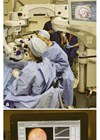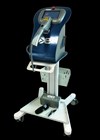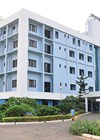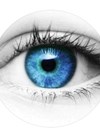Ophthalmology archive for August 2021
Gene therapy for inherited retinal disease: the Manchester Ocular Gene Therapy Group MDT service
The authors describe the process set up in Manchester for the optimum delivery and assessment of a new gene therapy treatment for patients with RPE65 IRD. Inherited retinal dystrophies (IRDs) are the second commonest cause of severe visual impairment in...
Effective management of dry eye and ocular surface disease
Experts recommend a consistent approach to diagnosis, therapeutic targeting by disease subtype and escalation of therapy when tear substitutes are not sufficient. Experts call for a consistent, unified approach to diagnosis of dry eye disease (DED), with a new simple...
Sustainability in eyecare: Climate action in eyecare
Climate change will cause disruption to critical eyecare services and increases in rates of eye disease around the world. The International Agency for Prevention of Blindness has recommended 10 key areas of action on how the eyecare sector can address...
Sustainability in eyecare: Aravind Eye Hospital’s low carbon eyecare system
The field of healthcare has a substantial impact on the environment as it is responsible for 5-10% of greenhouse gas emissions and 9% of air pollutant generation [1]. Surgery is associated with the rapid consumption of single-use products and waste...
My top five Instagram accounts to keep your scrolling educational
There’s no denying that now, more than ever, we are better connected to our electronic devices; 24/7, around the clock. The phenomenon of ‘Zoom’ and ‘Microsoft Teams’ is shaping the future of medical education, national trainee recruitment and conference access....
Sustainability in eyecare: Intraocular gases and the climate emergency
In 2020 the NHS became the first national health system to commit to delivering ‘net zero’ carbon emissions by 2040. The author investigates how the impact of ophthalmic surgery can be reduced. Medical gases have been used in ophthalmic surgery...










